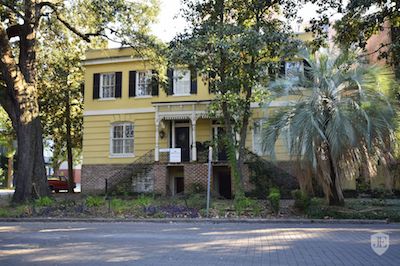
SO YOU’RE THINKING OF BUYING A HOME?
Buying a home is unlike any other type of purchase. The process begins with shopping for a mortgage and ends at the closing table—with several important steps in between. It can seem pretty complicated, but if you know what to expect, the process can go relatively smoothly.
The length of the home buying process is different for everyone – anywhere from 30 days (for all cash deals) to six months or longer. Once you have made a decision to buy, the average timeframe is one to three months shopping for the right place, a few days making an offer and negotiating, and 30 – 45 days to close the deal. It all depends on how well you prepare. If you’re new to home buying, this 10-step guide breaks down the process:
- Shop for a mortgage. Before you waste time looking at (and falling in love with) houses that are out of reach, talk to a lender. Don’t limit yourself to just one lender, either. You may get different rates from each one you contact, so you can end up paying more than you have to if you don’t shop around.
- Make a list of needs and wants. Once you have an idea of what you can spend, you should make a list of the most important things you want in a home. This will help narrow down the playing field, so you won’t waste time by looking at properties that don’t suit your needs. This might include a fenced yard for a pet, an office space, or a specific number of bedrooms.
- Find a real estate agent. You may think you can save money by trying to go it alone, but the fact is, if you don’t have an agent working to get you the best deal – and helping you navigate through all the paperwork – you are going to be relying solely on the Listing Agent of the property. And who do you think that agent is partial to? The Seller! You need someone on your side, and since it won’t cost you any money, it’s a no-brainer.
- Peruse listings online at home. You can do your own search on Zillow and Trulia, as well as on many other sites, but you will often find that those listings are not up-to-date. Your agent has access to the most accurate inventory of homes in your area of interest. He or she can set you up with listing alerts that will let you know the moment a house that fits your criteria gets listed. Even better, an agent has access to upcoming listings that aren’t even on the market yet! I personally recommend Homesnap – you can use it to find out the latest information on any property. One of the coolest features is finding out commute times (i.e. between a property and a place of work, school, shopping center, etc). You can check it out here: Homesnap.
- Visit potential homes with your agent. Once you have found a few homes that look like potentials, your agent can schedule viewings. Believe me, pictures can not take the place of visiting a neighborhood and actually stepping inside a home.
- Make an offer and negotiate. When you have found the perfect house, your agent can help you determine what to offer. This number will depend on several things – what comparable homes in the neighborhood have sold for, and what kind of market it is (buyers’ or sellers’), to name just two.
- Schedule a home inspection. Once you have a signed contract, your agent can recommend an inspector. You can go along if you want to, but it is not really necessary. The inspector will send you a detailed report usually within 24 hours. You may need to negotiate further if the inspector has found any issues with the property.
- Get your loan approved. At this point, you should have already submitted all the necessary paperwork to your lender in order to get the underwriting process going. Your agent will be working closely with the lender to assure that he has all items needed so that you can close on the date stated in the contract.
- Wait for the appraisal. Your lender will arrange for an appraiser to contact the agent. This is an important step, because the house must appraise for at least the purchase price, or else the lender can not approve the loan. If it doesn’t appraise, you can either ask for a reduction in price or you can withdraw your offer. Both the inspection and appraisal must be done in a timely manner (known as the “due diligence” period of a contract).
- Wire funds and go to the closing. When your loan has been approved, you will receive a statement with all the credits and debits charged to both the seller and you. This has to be signed three days before the closing. Your closing attorney will then be able to tell you how much to transfer the day before closing. Most closing attorneys will not accept more than $5000 unless it is in the form of a wire transfer.
If you need help with any of the above steps, send me an email with your criteria, budget and timeframe: msnitsch@gmail.com. I’d love to help you!






